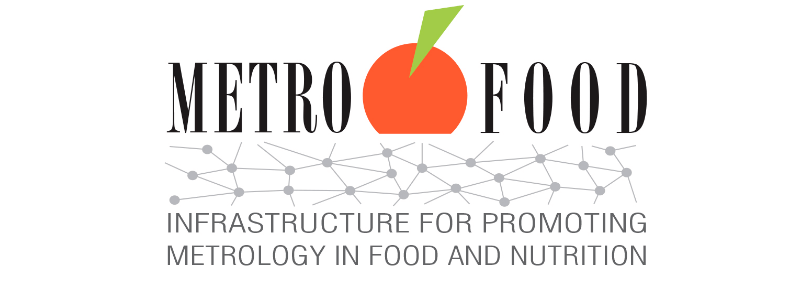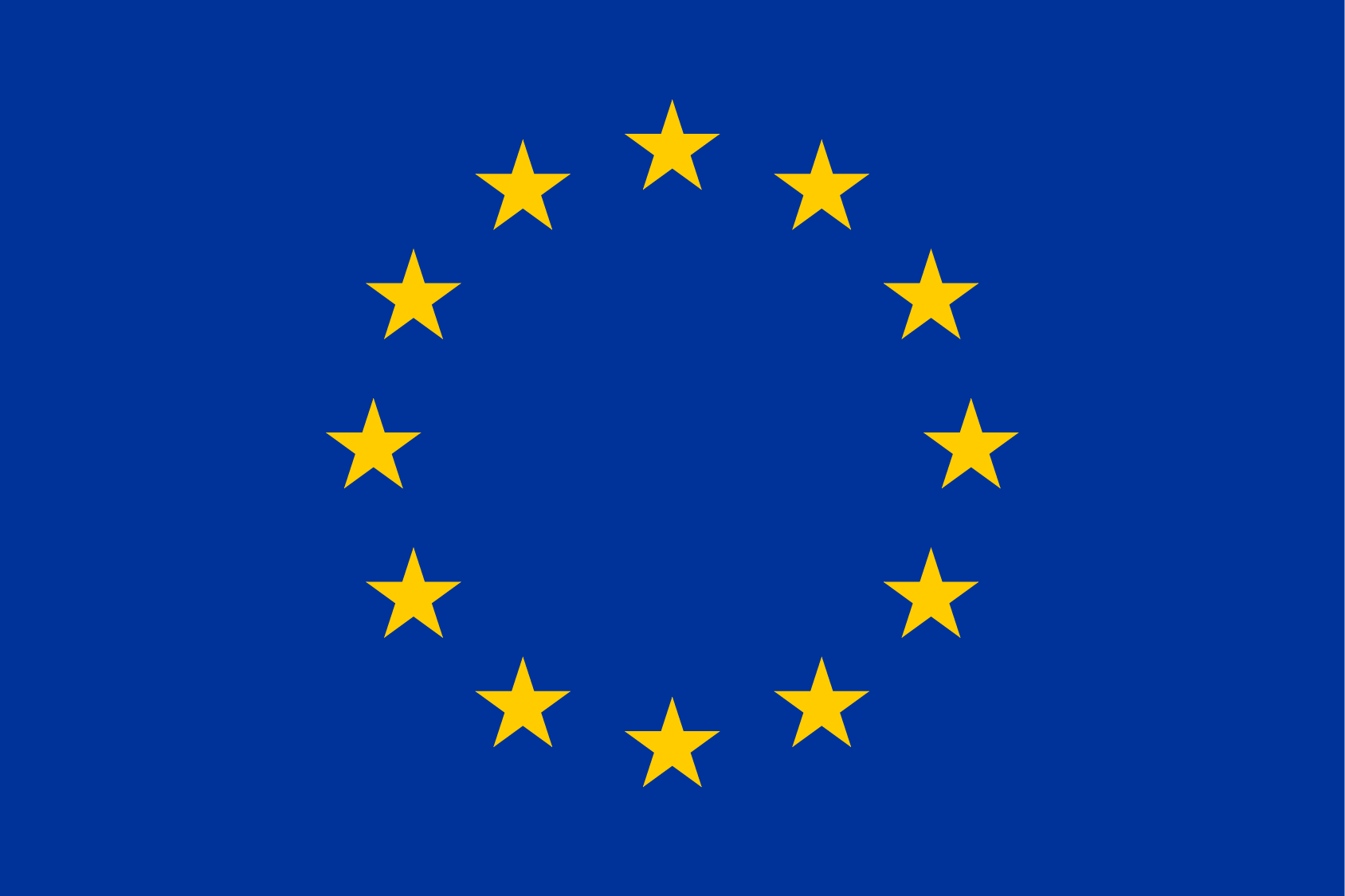Deliverables & Milestones

Deliverables
D-01.01
Report including the minutes of the METROFOOD-PP Kick-off Meeting, which has been organized as a two-day meeting in Lisbon on 9-10 January 2020 with the participation of the Beneficiaries and Linked Third Parties. The meeting was aimed at assessing and discussing with all the Beneficiaries the proje...
Read MoreD-01.02
Report including a description and some visual image of the current version of the password-protected web-based project management area ( https://www.metrofood.eu/private-area/login.html), available under the general website of METROFOOD-RI (www.metrofood.eu). It serves as a communication, informati...
Read MoreD-01.07
Report including the minutes of the 2nd METROFOOD-PP Project Progress meeting, which has been organized as a two-day telco meeting on 13-14 May 2021. The meeting was originally planned as an intermediate meeting of the Beneficiaries, it was then extended to a Consortium Assembly meeting with the par...
Read MoreD-01.08
Report including the description of tasks carried out and technical progress, the related overview of financial status and manpower effort for the METROFOOD-PP project (GA871083), at Month 18 (Dec.2020 – May 2021). It is aimed to the internal quality control of the project, including controlling and...
Read MoreD-01.09
Report including the minutes of the 3rd METROFOOD-PP Project Progress meeting, which has been organized as a two-day meeting on 24-25 November 2021. Originally planned as an intermediate meeting of the Beneficiaries, it was extended to a Consortium Assembly meeting with the participation of the whol...
Read MoreD-01.12
Report including the description of tasks carried out and technical progress for the METROFOOD-PP project (GA n° 871083) at Month 30 (1st December 2021 – 31st May 2022), with a specific focus on the activities performed in the last six months (Month 25-30) and main implications for the future ERIC.
Read MoreD-02.01
Report including the minutes of the first meeting between the Coordinator (ENEA) and the EU-InterMinisterial Group (EU-IMG). The meeting took place in Lisbon on 10 January 2020, with the participation of Members of the EU-IMG, the METROFOOD-RI Node Representatives (NR) and the METROFOOD-PP Managemen...
Read MoreD-02.02
Report including the elaboration of the governance structure of METROFOOD-RI in its next phases: the 2nd Interim Phase and the METROFOOD-ERIC. As draft version, the document will serve as working document for further improvements and discussions internally to the current consortium, the board of Nod...
Read MoreD-02.03
Report including the minutes of the second meeting between the Coordinator (ENEA) and the EU-InterMinisterial Group (EU-IMG). The meeting took place in each representatives’ own Country, via telco through the Adobe Connect platform, on 18 May 2020, with the participation of Members of the EU-IMG and...
Read MoreD-02.04
Document including a detailed examination of the process and legal requirements for preparing the future legal entity of METROFOOD-RI as ERIC. The legal framework at EU level, with the Regulations in place (EC Reg. 723/2009, cons. 2013) and all the official EC documentation have been considered, al...
Read MoreD-02.06
Report describing the governance and management structure of METROFOOD-RI defined for the 2nd Interim Phase and for the ERIC. Two schemes have been defined according to the infrastructure life-cycle and its time planning, in order to ensure an optimal and smooth transition from the current project s...
Read MoreD-02.07
Report including the minutes of the fourth and fifth official meetings between the Coordinator (ENEA) and the EU-InterMinisterial Group (EU-IMG). Originally, it was planned to have semestral meetings of the IMG supporting METROFOOD-RI. Then, during the 3rd meeting, the IMG members asked and approved...
Read MoreD-03.02
Report including the 1st draft of the cost book update for METROFOOD-RI, starting from the cost book elaborated in the early phase. It includes the definition of the main structure, general principles and methodology that is being applied for collecting all the necessary data and performing the calc...
Read MoreD-03.05
Report including the business plan elaborated for METROFOOD-RI, containing a comprehensive plan on how METROFOOD-RI will achieve its strategic objectives by describing strategy, governance, services to be provided, research landscape, operation mode and the most appropriate business model that will ...
Read MoreD-04.02
Report including the IPR policy for the future METROFOOD-ERIC, focusing on the definition and production of the founding documents for the legal model of METROFOOD-RI as future legal entity, together with the documentation necessary to manage and run the RI activities and integrate the national and ...
Read MoreD-04.03
Report including the dissemination policy for the future METROFOOD-ERIC, focusing on the definition and production of the founding documents for the legal model of METROFOOD-RI as future legal entity, together with the documentation necessary to manage and run the RI activities and integrate the nat...
Read MoreD-04.04
Report including the human resource analysis and the human resource policy for the future METROFOOD ERIC, describing the main criteria and common principles to be applied, as well as examining the categories of professional profiles of the staff necessary for the Central Hub in order to ensure the i...
Read MoreD-04.05
Report including the access policy for the future METROFOOD ERIC, defining the principles and procedures to allow and regulate the Transnational access (physical, or remote) and Virtual Access to the RI and related services for users such as individuals, teams and institutions from academia, busines...
Read MoreD-04.06
Report including the data management policy for the future METROFOOD ERIC, addressing what and how data - including metadata - will be generated, collected, handled, and preserved in repositories following the FAIR principle, describing data management along the data life cycle and including aspects...
Read MoreD-04.07
Report including the scientific evaluation policy for the future METROFOOD ERIC, describing the criteria, procedures, tools, and scope for evaluating METROFOOD ERIC´s scientific excellence, performance, and impact as the core elements of quality assurance and research resource management.
Read MoreD-05.02
Document describing the definition of the operational framework, with the overall working model and organisational structure of METROFOOD-RI as distributed RI, to report on the criteria regulating the role and the organisation of the Central Hub, together with the plans for its functionality and a s...
Read MoreD-06.02
Report describing the technical concepts and requirements of the facilities included in the physical component of METROFOOD-RI, with specific reference to the “Food side”, focusing on: (i) facilities for primary production (FdPrim) and (ii) facilities for food processing and kitchen-labs (FdProc).
Read MoreD-06.04
Report including the plans for upgrading of the “metro side” physical facilities of METROFOOD-RI and an examination of the capacities and opportunities for the technical implementation of the facilities in support to service provision based on two sector-oriented case studies as examples of interope...
Read MoreD-06.05
Report including the plans for technical implementation and future operation of the physical infrastructure of METROFOOD-RI covering both the “Metro” and the “Food” side, discussing the potential for integrated operation of the infrastructure to address the key global societal challenges and the Eur...
Read MoreD-07.01
Document containing the Data Management Plan (DMP) for the METROFOOD-PP project, addressing what and how data - including metadata - will be generated, collected, handled and preserved in repositories following the FAIR principle (findable, accessible, interoperable and re-useable) as good as possib...
Read MoreD-07.02
Document specifying the architecture of the electronic part of METROFOOD-RI and describing the work that was already done to implement this architecture. The electronic architecture follows the physical architecture in which facilities are distributed between the partner institutions.
Read MoreD-07.03
Report on the plans for technically implementing the electronic component of METROFOOD-RI considering both hardware and software needs. Plans and e-needs are detailed for the Central Hub, the National Nodes and the partner institutions in view of the ERIC set up and infrastructure operation.
Read MoreD-08.01
Report including the definition and planning of the use cases that will be set up and open for free-of-charge access to users with dedicated calls for transnational access. The three use cases have been selected to assure that they are representative for excellence-driven and market-driven transnati...
Read MoreD-08.03
Report on the realisation of the use cases for Transnational Access and Virtual Access as defined in D8.1, including the description and evaluation of the transnational open calls, the procedures for the different access types and the results obtained by using the facilities, incorporating the princ...
Read MoreD-08.05
Report aiming to develop the service chart of METROFOOD-RI, defining and evaluating all the potential services that the infrastructure can/will provide to internal and external users. The services have been detailed and classified based on different criteria (e.g.: physical, electronic, combined; wa...
Read MoreD-09.01
Report defining the security management system for METROFOOD-RI, covering a dedicated risk analysis specifically focused on security aspects for both the physical and the electronic facilities and all related activities, followed by the definition of security and safety management strategies
Read MoreD-10.02
Report providing an overview of key societal challenges specially facing the agrifood sector. In this context, policy flagship initiatives and strategies have been taken as a basis to expand the challenges identified therein by additional challenges, gaps and research opportunities within the agrifo...
Read MoreD-11.03
Report focused on the description of the scientific communities and mapping of key stakeholders´ groups relevant for METROFOOD-RI, with the definition of the positioning of METROFOOD-RI within selected scientific communities and potential collaboration from the perspective of key thematic areas as d...
Read MoreD-11.04
Report focused on strategies and procedures for collaboration with food industries, with the final purpose to define a collection of standardized procedures for cooperating and interacting with them in the frame of METROFOOD-RI. Steps towards promoting and consolidating the industry collaboration an...
Read MoreD-11.05
Report describing the METROFOOD-RI´s strategy in identifying and engaging new collaboration partners and stakeholders from supranational and national organizations active in the Food & Health and Metrology in the Food and Nutrition sector, with particular attention to geographic regions not previous...
Read MoreD-12.01
Report describing the process of developing a method for social-economic impact evaluation of METROFOOD-RI with the definition of a set of Key Performance Indicators (KPIs) designed to monitor and quantitatively evaluate METROFOOD RI’s operation, performances, and progress towards its objectives and...
Read MoreD-12.03
Report describing the impact areas associated with METROFOOD-PP use cases by a socio-economic evaluation based on selected Key Performance Indicators (KPIs) among the ones identified in D12.1. An evaluation of the environmental impact of the whole METRODOOD-PP project is also reported, taking into c...
Read MoreD-12.04
Report describing the METROFOOD-RI´s impact communication strategy towards its key stakeholders, based on an inventory of key impacts generated by the infrastructure, followed by a matching of generated impacts with main stakeholders’ requirements and demands, and culminating in the provision of tai...
Read MoreD-13.01
Report including the results of the analysis performed to identify and classify METROFOOD-RI’s strengths and weaknesses, as well as the opportunities and threats offered by its R&D and business environment. It is based on the internal and external analysis of METROFOOD-RI for assessing its current p...
Read MoreD-14.01
Report focused on the basics of user engagement procedures, with the final purpose to define a collection of standardized procedures for cooperating and interacting with users. These procedures will support the user engagement and all the interactions to sustain the definition and update of the METR...
Read MoreD-15.01
Report including the Plan for Dissemination and Exploitation of Results (PDER) of METROFOOD-PP. It describes the tools and activities, with their periodicity, for the dissemination and exploitation at national and international level of outputs and innovations of the project as Preparatory Phase of ...
Read MoreD-15.02
Report including a summary of the design, creation and maintenance of the METROFOOD-PP website ( https://www.metrofood.eu/preparatory-phase.html), in the whole structure of the general METROFOOD-RI website (www.metrofood.eu). It includes a textual description and some visual images of the current ve...
Read MoreD-15.04
Report including the Updated Plan for Dissemination and Exploitation of Results of METROFOOD-PP. It updates the Plan for Dissemination and Exploitation of Results (PDER - D15.1) describing the tools and activities, with their periodicity, for the dissemination and exploitation of METROFOOD-PP and ME...
Read MoreD-15.05
Official video to present METROFOOD-RI, including the vision and offered services to the different user categories. The video was created keeping the visual identity used for the website and all the dissemination material, starting from the “plate” included in the official pics of the infrastructure...
Read More
Milestones
MS-01
The three use cases to be implemented in the frame of WP8 for service provision, along with WP12 for impact assessment and WP14 for user engagement, has been defined. The services cover physical, remote and virtual-wide access and are addressed to different categories of users. Details have been def...
Read MoreMS-02
The management principles for METROFOOD-RI were studied and discussed among the Beneficiaries, the Management Committee and particularly the leaders of the interested WPs (WP4 and WP9, along with WP2). The basic principles for management refer to IPR, dissemination, data management, procurement, acc...
Read MoreMS-03
The criteria for service provision were studied and discussed among the Beneficiaries, the Management Committee and particularly the task leaders of WP8. The basic principles include: most commonly available services, main target users, European agenda, sustainability, innovation, complementarity, a...
Read MoreMS-04
The management principles and proposed schemes for the governance structure during the 2nd Interim Phase and for the ERIC were discussed and voted by the Consortium Assembly during the 1st CA meeting on the 5th of Nov., collecting one vote per Beneficiary (the vote of the PI or a proxy).
Read MoreMS-07
The SWOT analysis was updated identifying/refining the definition of METROFOOD-RI’s Strengths, Weaknesses, Opportunities, and Threats; furthermore TOWS action plans were proposed considering "strengths to maximise opportunities", "strengths to minimise threats", "minimisation of weaknesses by taking...
Read MoreMS-08
The “user database” has been implemented in two different versions for evaluation and testing. The first version was an own implementation and contains over 800 entries of potential external users/stakeholders and is available at: matsci.chem.u-szeged.hu/mfdb (a dedicated report describing the syste...
Read MoreMS-09
The technical concepts and requirements of the facilities included in the physical component of METROFOOD-RI, for what concerns both the “Metro” and the “Food side” have been defined, respectively considering: “(i) Plants for RM preparation/production, (ii) Analytical Labs, (iii) facilities for prim...
Read MoreMS-11
The templates of the contracts were unanimously approved during the 2nd project progress meeting as follows: MoU for the Interim Phase in its (pre)final version under approval from the IMG; ERIC statutes as prepared by the ENEA legal office and the Italian representative in the IMG and under discuss...
Read MoreMS-12
With the purpose to define the scientific agenda of METROFOOD-RI, as necessary preliminary step, the demands on the EU and global agrifood sector and food regulation have been analysed in depth, thus defining relevant research needs and main scientific and technological developments (See D10.2).
Read MoreMS-13
A set of KPIs to monitor and quantitatively measure the success in achieving the specific objectives of the METROFOOD-RI have been defined to have available specific indicators for evaluating the socio-economic impact of the RI in its lifecycle, taking into consideration its operation, performances ...
Read MoreMS-15
The architecture of the physical infrastructure in its Hub & Node has been defined and approved by the Management Committee, detailing the role and the management and organizational structure of both the central hub and the national nodes, as well as defining their connections. See D5.2 + D5.3.
Read MoreMS-16
The METROFOOD-RI data domains have been identified and the topics map has been prepared, based on the input from D10.2 and classified into different categories according to the structure of the facilities and the Core Services (Analytical labs, RM plants, Primary Production, Processing and Kitchen l...
Read MoreMS-17
The security and quality management system and the relative procedures were defined and then approved by the MC on the 25th of November. Security and safety management strategies have been elucidated and implemented in compliance with regulatory requirements in terms of physical, logical and IT secu...
Read MoreMS-18
The three use cases have been completed by providing transnational access (TNA) and virtual access (VA) to users. Users for the use cases on physical and remote access applied to dedicated open calls, while access to the virtual use cases is free-of charge, upon registration in the Authentication & ...
Read MoreMS-21
The agreements for the ERIC, and the ERIC statute in particular, were approved by the Management Committee from the consortium side as in the form reached at Month 24, giving the mandate to the Coordinator to include eventual further refinements as eventually proposed by the InterMinisterial Group. ...
Read MoreMS-25
The user engagement and communication strategies were elaborated in their final version presenting the METRFOOD-RI communication strategy and approach, specifying target audiences, communication toolkits and channels, as well as summarizing the evaluation methodology of the communication activities,
Read More



